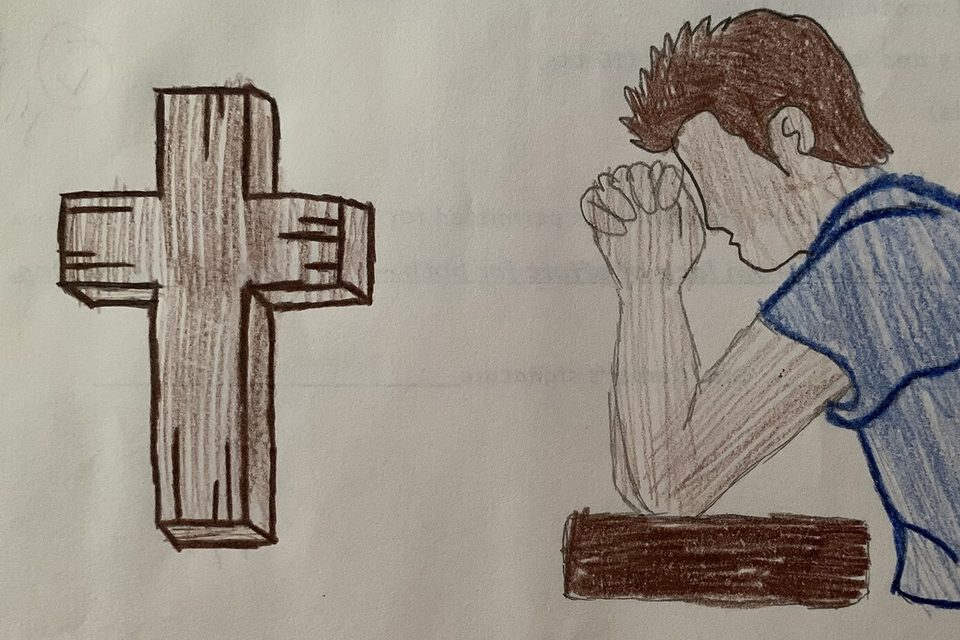Last year, the Supreme Court overturned the 1973 Roe v. Wade decision, effectively allowing states to decide whether to support “abortion rights” in their communities. This event incurred feelings of outrage and confusion for pro-choice advocates and cautious optimism for pro-life groups.
As Catholics, we believe that life begins at conception, all lives deserve dignity, and each person should be given the opportunity to live and thrive as part of a community. In other words, this sense of dignity extends through every part of the human experience, and human life should be respected from conception through natural death. In the Catholic Church, we believe that all people are made in the image of God, we support the expansion of affordable healthcare and childcare, we oppose racism in all its forms; and we continue to advocate for anti-poverty measures in our community. We are not just an anti-abortion group; we are a pro-life Church.
In the last six months, we have learned that overturning Roe v. Wade will not put an end to abortion. In fact, in areas like Washington, D.C., and Maryland, abortion services are becoming increasingly available as women from other states travel here for these procedures.
Secondly, although faith-based communities have historically provided supportive services, additional services are needed to appropriately support women and families in need. There are plenty of abortion services available in this state, but not enough life-affirming programs to support women in maternal health, childcare, and education. At the same time, our Catholic community can offer spiritual and community-based supports, allowing us to walk with mothers in a unique and authentic way.
Finally, there is vitriol, spite, and a lack of civility on both sides of this debate. This Supreme Court decision has not brought out the best in America. Instead, it has resulted in legitimate feelings of fear from those who do not understand our belief in the dignity of life, and defensiveness in those who do understand and value these teachings.
In response to the various needs of our community, the Office of Life Issues has launched a series of initiatives to support families and build community, promote education and dialogue, and enhance advocacy efforts:
* Maryland March for Life: Please join us on Monday, February 27th, 2023 for the 44th annual MD March for Life. It is more crucial than ever that we come together to support Bringing Maryland Back to Life. Participants will gather at St. Mary’s Parish in Annapolis at 5 p.m. and proceed to Lawyer’s Mall. Please visit mdmarchforlife.com for more information and to register.
* Maryland Catholic Conference’s Prayer Vigil for Life and Lawmakers. People are also encouraged to attend the Maryland Catholic Conference's Prayer Vigil for Life and Lawmakers on March 9 at 7 p.m., at St. Mary’s Church, 109 Duke of Gloucester Street in Annapolis. The Catholic bishops leading the three dioceses serving Maryland – Washington Cardinal Wilton Gregory, Baltimore Archbishop William Lori, and Bishop William Koenig of Wilmington, Delaware – will participate in the prayer vigil. Free on-site parking is available, or people can park along the street. The vigil will take place during the same week that hearings on legislation to legalize physician-assisted suicide will be held. Visit the Maryland Catholic Conference’s website at mdcatholic.org for information on that vigil and on how to take a stand on legislation impacting life issues in the Maryland General Assembly.
* Pro-Life Grant Program: Parishes can apply for up to $2,000 in funding for any programs or resources that support families in need. Past grantees have received support for nutrition programs, youth education, diaper banks, and life issues presentations. Applications will be sent out to parishes in April 2023. Please contact the Office of Life Issues for more information.
* Beginning and End of Life Resources: The Affirming Life Guide is a resource for pastors and parish ministers to help them provide support to parents who have received an adverse or difficult prenatal diagnosis. The End of Life Guide is intended for families who have experienced the loss of a loved one to help guide them through the grieving and funeral process. Both resources are bilingual and printed copies are available upon request.
* Catholic Civil Dialogue Initiative: This program facilitates structured conversation on Catholic Social Teaching for youth and young adults. It can also be used for parish social ministry teams and adult faith formation. The Office of Life Issues will provide training and resources for adult facilitators, as well as program support.
* Project Rachel Ministries: We are expanding our post-abortion healing program to a regional model to reach more men and women who have experienced abortion. This ministry will support these members of our community, provide spiritual healing, offer referrals to mental health care, and is open and welcoming to all. Volunteers should contact projectrachel@adw.org for more information.
Women in our community deserve real choices—not increasingly affordable and accessible abortion access. We deserve affordable healthcare, childcare, and fair pay. Our children deserve care, safety, and educational opportunities. We all deserve to live in a society that is not led by fear, but by love for our neighbors. We know that these commitments will not resolve all issues within our communities, but I encourage you to consider promoting this advocacy within your own circles. These commitments will help us to do better as a society and protect the dignity of all persons.
(Kathryn Yanik serves as the Director of Life Issues for The Roman Catholic Archdiocese of Washington.)











